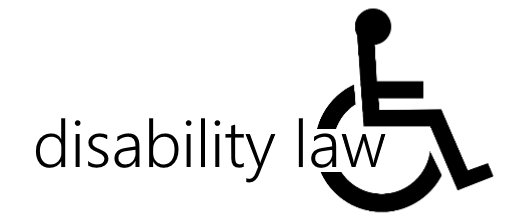DIVERSITY IN THE WORKS: Capitalizing On And Supporting Neurodiversity Inside The Office – Employment and HR
Summary: As John Edler Robison, author of Look Me in the Eye (a treatise on his life with Asperger’s Syndrome and Savant Skills) noted, “Neurodiversity is the idea that neurological differences such as autism and [attention deficit hyperactivity disorder
(“ADHD”)] are the result of a normal, natural variation in the human genome “and are” not the result of disease or injury. “Some estimate that 10% of the human population have neurodiverse diseases such as autism, ADHD, obsessive-compulsive disorder, dyslexia and Tourette. that Steve Jobs, Steven Spielberg, Richard Branson, Mozart, Pablo Picasso, Marilyn Monroe and Andy Warhol were neurodivers.
In the modern workplace, neurodiverse employees can offer an organizational advantage. Some may have high levels of focus which allows them to excel in a variety of roles such as accounting, computer programming, and journalism. Other neurodiverse employees can be highly creative. Ultimately, neurodiverse workers offer unique job and workplace perspectives. However, to develop this pool of potentially valuable employees, organizations may need to adapt their hiring and other workplace practices.
Rethink the hiring process
Neurodiversity should be taken into account when recruiting, hiring and onboarding. For example, employers should ask themselves when hiring a particular position: “Are we looking for someone who is versatile or do we need a specialist for this particular position?” Based on the position a company is looking to fill, that company may consider an application process that includes non-traditional articles such as videos and art.
Additionally, employers should keep in mind that given the unpredictability and unfamiliarity of the interview process, someone with a neurodiverse disorder like autism may struggle – but may have all of the skills required for a specific role. Additionally, autistic employees may prefer routines, so employers should avoid sudden, unexpected changes in the interview process (or be open to postponing an interview rather than making abrupt changes).
Specialisterne – a Danish social innovator company that uses the traits of people with autism spectrum disorders as a competitive advantage in the workplace – has developed an approach known as “hangouts” to assess neurodiverse candidates. Hangouts are leisurely gatherings, usually half a day, where neurodiverse job candidates can demonstrate their skills in casual interactions with corporate managers. At the end of a hangout, a few candidates are selected for two to six weeks of additional assessment and training.
Adjustments in the workplace
As Look Me in the Eye writer Robison noted, “Indeed, many people who embrace the concept of neurodiversity believe that people with differences do not need to be cured; they need help and shelter instead.” In fact, neurodiverse diseases can be considered “disabilities” under the Americans with Disabilities Act (“ADA”) and similar state laws. Accordingly, neurodiverse job applicants and employees may be entitled to reasonable accommodation. According to the United States Equal Employment Opportunity Commission (“EEOC”), “the insured facility may need to initiate an informal, interactive process with the person with a disability requiring the accommodation in order to make the reasonable and reasonable accommodation process should identify the precise limitations imposed by the disability and potential reasonable accommodation that could overcome those limitations. ”
It should be noted that the precautions for neurodiverse workers do not have to be extensive to be effective. However, organizations should be flexible in managing / overseeing neurodiverse workers, workplaces, and communication. Accommodation can be:
- Changes in physical space.
- Providing a quiet place to work with little stimulation (or use of headphones).
- Participation in work-related social events is optional.
- Giving instructions via email (rather than verbally).
- Transfer to a vacant position or another team.
- Work colleagues or job coaches.
Conclusion: Neurodiverse employees can potentially bring valuable skills to the workplace. So hiring is not about being nice or giving people jobs, it is about making sure that a given company has the best workforce possible to meet its needs. Several well-known companies have adapted their HR practices to neurodiversity, including Hewlett Packard, Microsoft and Ford. SAP, for example, launched an “Autism at Work” program in 2013. By December 2020, SAP had placed more than 100 employees in 18 roles, with a retention rate of 90%. As one SAP manager noted, “The initial expectation, as I understood it, was that these colleagues would mainly focus on repetitive work like software testing. In practice, however, they have been able to add value in a much broader range of tasks. ”“ Put simply, employers can use and support neurodiversity in the workplace to improve products, processes and services (and thereby gain an advantage over competitors).
The content of this article is intended to provide general guidance on the subject. Expert advice should be sought regarding your specific circumstances.

